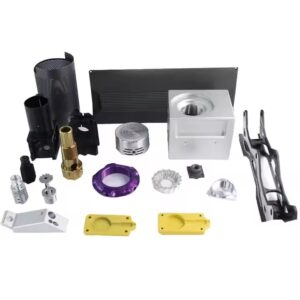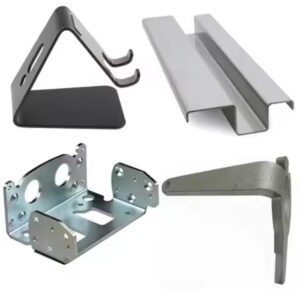Starting a new project? One of the most crucial steps is selecting the right metal material. Making the wrong choice can lead to poor product performance and jeopardize the success of your entire project. So, how can you ensure the metal you choose meets your application requirements? Let’s break it down step by step.
Understand Your Application Needs
Before diving into metal selection, clarify your project’s requirements. Here are some key factors to consider:
- Strength and Durability: How much pressure and impact will your product need to withstand? Different metals vary significantly in these aspects.
- Corrosion Resistance: Will your product be exposed to harsh environments, like seawater, acid rain, or extreme temperatures? Some metals are inherently more resistant to corrosion than others.
- Thermal Performance: Does your product need to operate in high or low-temperature conditions? Certain metals perform better under extreme temperatures.
- Aesthetics: If appearance is a priority, some metals can provide a more appealing finish than others.

Exploring Common Metal Materials
Here are some common metal materials and their characteristics:
- Steel: One of the most widely used metals, steel is known for its high strength and durability at a relatively low cost. However, standard steel can rust, so protective coatings or treatments may be necessary.
- Stainless Steel: Renowned for its excellent corrosion resistance, stainless steel is commonly found in food processing, medical devices, and outdoor applications. While it’s more expensive than regular steel, its long-term performance and low maintenance make it a worthwhile investment.
- Aluminum: Lightweight yet strong, aluminum boasts good corrosion resistance. It’s prevalent in the aerospace and automotive industries, where performance and weight savings are essential.
- Copper and Bronze: These materials are favored for their excellent electrical conductivity and corrosion resistance. They’re commonly used in electrical and plumbing applications, as well as for decorative purposes.
- Titanium: Known for its high strength-to-weight ratio and outstanding corrosion resistance, titanium is popular in aerospace and medical applications, though it comes with higher processing and procurement costs.

Avoid Common Mistakes
To make better decisions when choosing metal materials, steer clear of these common pitfalls:
- Ignoring Material Properties: Each metal has unique characteristics. Overlooking these can lead you to select a material that isn’t suited for your application.
- Lack of Testing: Before bulk purchasing, it’s crucial to conduct sample testing to ensure the material meets your quality standards.
- Neglecting Supplier Quality: Choosing a reliable supplier is essential. Verify their quality control processes and check for positive customer feedback.
Best Practices in Real-World Applications
Let’s explore some best practices in various industries:
- Mechanical Engineering: Strength and durability are key here. Steel and stainless steel are often preferred for their robust strength and corrosion resistance.
- Automotive Industry: Weight reduction is vital in automotive design. Aluminum and magnesium alloys are commonly used due to their high strength-to-weight ratios.
- Aerospace: The aerospace sector demands materials with extreme strength and low weight. Titanium and certain specialized alloys excel in these applications.
Conclusion
Choosing the right metal material can be complex, but by understanding your application needs, exploring the characteristics of various metals, and avoiding common mistakes, you can make informed decisions. Remember, testing and validation are critical steps in this process. Don’t hesitate to seek advice from professionals, as their insights can be invaluable.
Ultimately, selecting metal materials isn’t a one-time decision; it’s an ongoing process of learning and improvement. As technology advances and new materials emerge, staying adaptable and open to new methods will serve you well.
I hope this article helps you make better choices in selecting metal materials. Happy fabricating!




